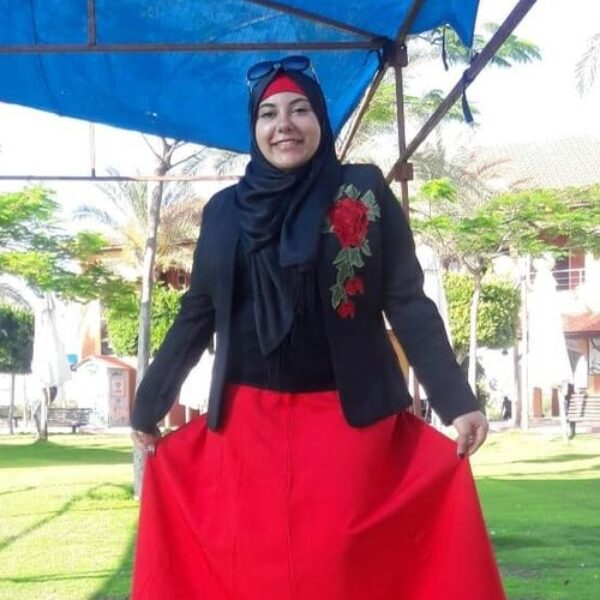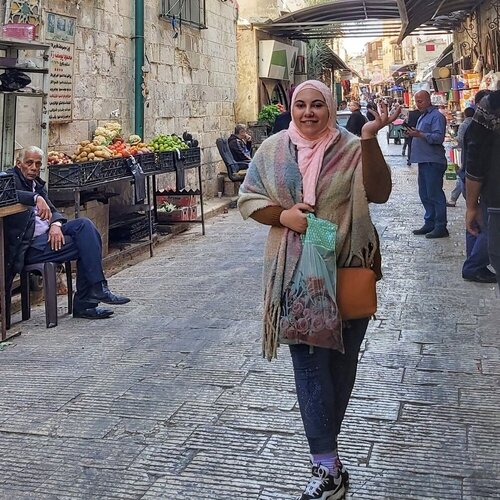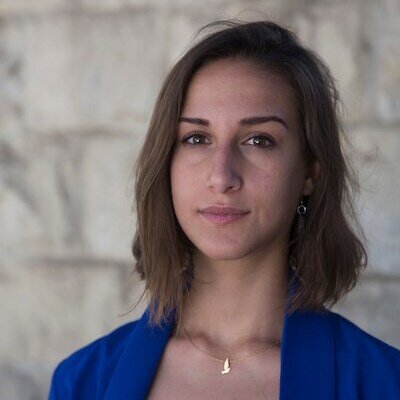Three years ago, I took a trip with my university geography class to al-Mintar Hill, the highest point in Gaza, and gazed at the Hebron mountains across the horizon. After a decade of Israeli blockade, the 60 kilometers between my perch and the other city of my homeland seemed more like a continent. I felt an overpowering nostalgia for a place I have never been allowed to visit—a feeling familiar to every Palestinian. We are banned from traveling from one part of our homeland to another—from Gaza to the Hebron, Jerusalem, or Haifa.
And then, suddenly and unexpectedly, the forbidden was granted. I traveled! Just two years later, an international NGO took me to the West Bank to speak to other Palestinians about the business of freelance writing, and I found myself standing in the spot on which I had gazed with such longing, the womb of Hebron’s hills.
Today, it has been a year since my visit to the West Bank. Until now, however, I found myself avoiding writing about the experience. I didn’t want to admit that it was over, that perhaps it may never be repeated. But writing about it also will help preserve this very special gift, and it is time.
An unexpected gift
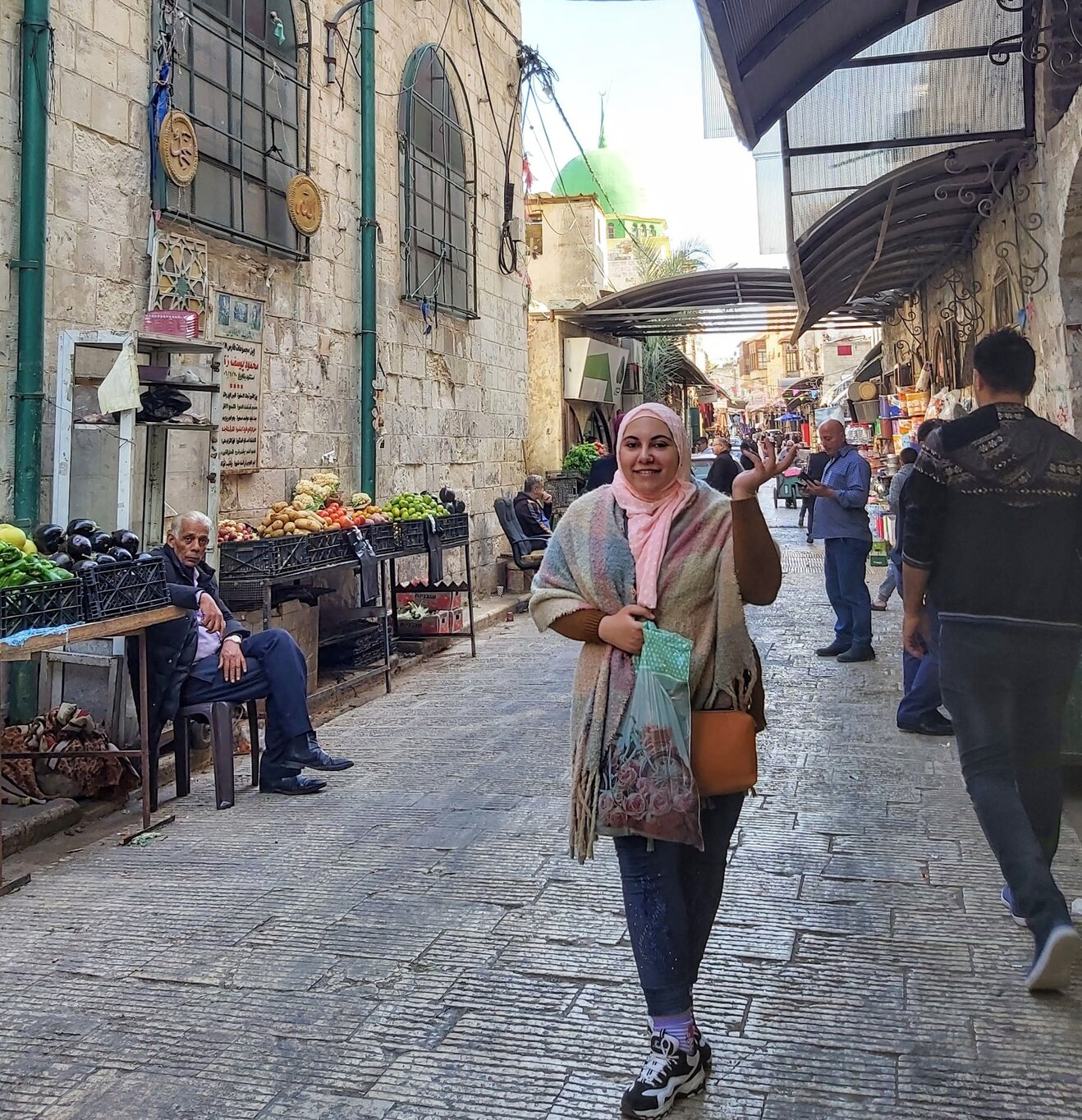
“Baba! I got the permit!” I squealed to my father upon receiving the news that Israel had approved my permit to exit Gaza through Erez into the West Bank. It will seem strange to others that traveling within your own land engenders as much excitement as obtaining a visit a foreign country, but for me, I can only describe the feeling as euphoria. I wonder how it would feel to get a visa to an actual foreign country, without having to file dozens of applications and appeals, whispering prayers to increase my odds?
Jerusalem, Nablus, al-Khalil (Hebron): Finally, these Palestinian towns were no longer just stories I heard from older Palestinians. Strangely, in that trip, I felt more Palestinian than I ever had before. But even more miraculously, I was able to breathe. In the literal sense, I was able to physically breathe more deeply. The air in Gaza, like the water, is polluted and too often unfit for human consumption. I don’t think I realized that until I breathed something different.
However, getting there through the Israeli checkpoint was like running a gauntlet designed to convince you to give up. The procedures and protocols are endless: My phone had to be hidden away; at no time could I take it out to let my family know I was ok. I was not allowed to carry a phone charger, make-up, combs or even a toothbrush in my luggage. (I was especially disappointed about my lipstick—partly because I couldn’t understand the threat it poses, and partly because it was a really good color.)
And my suitcase could not have wheels or a metal frame. These rules are imposed in tandem with a physical search of my body by Israeli forces. Similar to what I hear about airports, the instructions were shoes off, jackets off, hands up, legs wide. But here, the search was conducted roughly by army personnel while they gripped their weapons tightly. I was well aware of the extent to which my life and ability to travel depended on the attitude and mood of these soldiers. “Humiliating” can’t quite capture my feelings.
I was finally allowed to exit Erez and my humiliation and anger vanished when I heard the shouts of the bus drivers: yalla Al-Majdal, yalla Nablus, yalla Al-Khalil, yalla Al-Quds (Jerusalem). I took the first of many deep breaths and gave thanks: At least I was only held up for hours rather than the entire day, like some.
I felt like I was in a trance during the two-hour drive from Erez to Hebron. I couldn’t believe I was where I was. Why must leaving the Strip to visit another Palestinian city be so rare, a romanticized? The euphoria felt by my colleagues and I made us want to dance in the aisle, clapping in sheer joy. Looking out the windows, I was in awe of all the green. In Gaza, the colors are mostly gray and brown.
The driver was kind enough to allow us to stop in a small park on the way so we could revel in the fresh air. I learned that the greenery that had captivated me were oak trees. I had never seen an oak tree before. I imagined a scenario in which I was able to stay in this place for a while, watching the leaves turn color.
Leaving the park in high spirits, I saw the Israeli flag at the entrance to the park. I knew I was home, but my home was occupied.
A Palestinian meets Palestine
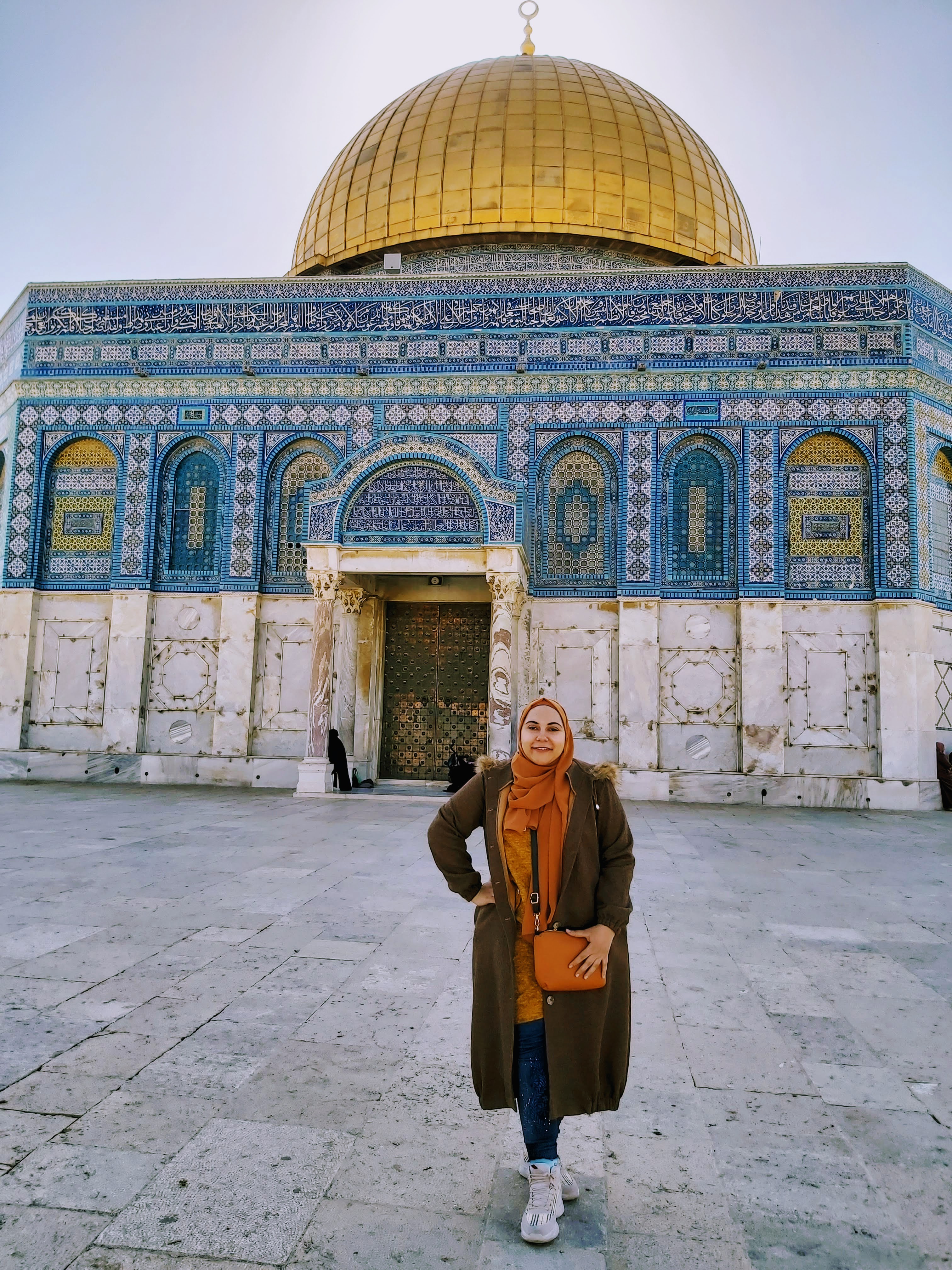
Wandering the alleyways of Hebron’s streets, specifically the neighborhood of Ras al-Joura, I saw a different side of life. In the evening, the houses lit up like stars. The constant power outages in Gaza drapes our streets in pitch black.
The company I was in was special too. The cultural norms in Gaza restrict the ability of females to have sleepovers, but in the West Bank I was free of such arbitrary rules. I was able to share my journey with two of my closest friends, Sereen and Shoruq (who I call Sunrise, since that is what her name means). In fact, there were many constrictions on my life and creativity that were released during that week-long reprieve: I also bowled for the first time and I stayed out late with friends to explore what Hebron had to offer. In return, I gave the city my laughter and joy.
Nablus was equally as refreshing, with its high mountains and deep valleys. And then there is its unique white cheese, called Nabulsi. Tradition says that you haven’t truly experienced Nablus if you haven’t tasted Nabulsi. But most memorable of all was seeing my childhood friend Mais, with whom I had grown up in Saudi Arabia. I made sure the video camera on my phone worked so I could capture the moment of our reunion. Embracing Mais again after 10 years of separation was filled with both joy and sorrow. That moment of reunion, feeling at home again, gave me the heart and strength to forgive the world and believe in its kindness once again.
That feeling of relief disappeared, however, when I arrived at Damascus Gate in the Old City of Jerusalem and saw armed Israeli soldiers stationed there. My heart beat rapidly; I was terrified of being shot or arrested. When I made it through without incident, I could finally calm down.
It may seem silly and maudlin, but the sight of al-Aqsa Mosque filled my eyes with tears. In that moment, if someone told me that the sun’s rays come from the Dome of the Rock, I would have believed it. I brushed my fingertips across the ceramic tiles and prepared to pray. In a state of spiritual trance, I felt transcended, above the painful banality and heartache of oppression. Sereen prayed with me, then we ran through the yard, laughing.
The Old City of Jerusalem was the final stop before my inevitable return to Gaza. I felt as if time had scurried away as I struggled to etch every scene into my heart. I was resentful and bewildered at the sight of international tourist groups who walked around with ease, perhaps ignorant of natives like me who must beg for permission to visit for such a short while.
I bought a bag of the famous kaa’k al-Quds, an oval-shaped biscuit coated in sesame seeds for which Jerusalem is famous. Then, as the stamp on my Israeli-issued permit ordered, that evening I returned to Gaza through Erez. As I lay my head on my pillow that night, I wished my return was just a dream.

